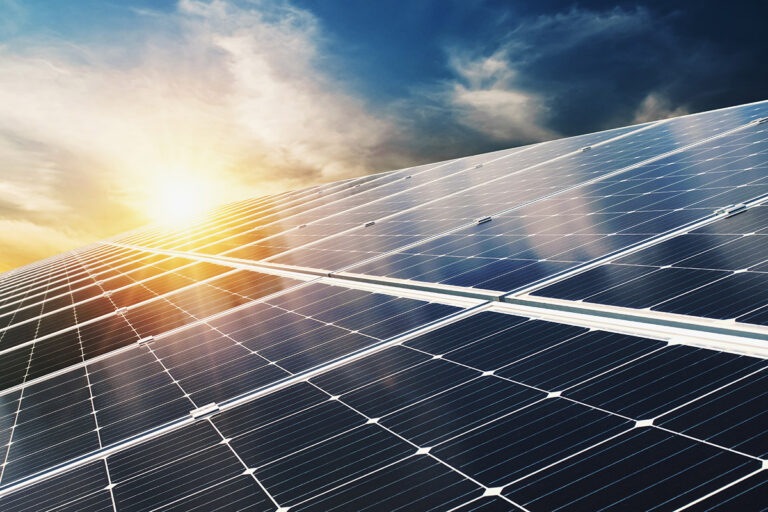Those soaring electricity bills may have hurt us all in the pocket, but there might just be a knock-on effect that helps the planet.
Energy bill hikes are a key reason behind the growing attraction of installing solar panels, according to Denton Williams, the CEO of the BAC Group of Companies, which includes Bermuda Alternate Energy.
Mr Denton said there had been a fall-off in interest in the green technology early this year, but added: “There’s been a bit of comeback in October as a result of the high adjustment rate. People are getting their bills and deciding they are going to make the investment.
“We are hearing it from our staff in terms of sales and customers, and we also took a look at the number of planning applications so that includes our company and other developers as well.”
A total of 57 residential applications for solar panels were made from July to September, up from 37 in the second quarter. The overall trend is positive too: a total of 150 residential applications were made in the first nine months of 2022, compared with 62 for the corresponding period in 2019, the year before the Covid-19 pandemic.
The electricity bill rise came after Belco was given permission to increase its charges in response to rising fuel prices from July, as the fuel adjustment rate went up from 18.90 cents per kilowatt-hour to 20.12 cents.
In September, British-based insurer William Russell found that Bermuda was the most expensive place in the world to run appliances, with residents paying 41.2 cents per kilowatt-hour of power.
Mr Williams predicted a “substantial increase” in solar installation in the months to come. “In the residential market, the reason is primarily economic,” he said.“You’ve got a negative incentive like high electricity costs, the panels themselves are becoming cheaper, government offered duty relief on all aspects of a solar system – these sorts of things accelerate it.
“There have been significant improvements in the technology, so the panels become more efficient. People, I do believe, want to reduce their environmental impact. When the economics get behind it, I do believe they really drive it forward.”
The slowdown earlier this year could be attributed to the withdrawal of the Government’s solar rebate plan, Mr Williams added.
Under that rebate, homes with an annual rental value of less than $30,000 qualified for up to $8,000 to offset the cost of installing panels.
“The solar rebate should be a lesson learnt for people,” Mr Williams said. “If it is reinstalled, jump on it and take advantage. We think that would be another good incentive for people.”
Mr Williams said other options are available for families who want to go solar but do not have the cash to pay for installment.
“Our recommendation is to focus on energy efficiency and conservation first,” he said. “There are some good offerings from Butterfield Bank, HSBC and Clarien. Any system should pay for itself.”
On the corporate side, the leading driver of sales is the environmental factor.
Mr Williams said: “We are seeing a larger global movement towards ESG reporting, requiring reporting on annual reports and showing shareholders and stakeholders that you are trying to minimise impact on the environment.
“There’s a lot of interest in what people can do to demonstrate their commitment to improve their ESG metrics.
“We believe solar is on one of the best ways to help Bermuda meet its renewable energy targets. We are optimistic about the environment going forward.”

